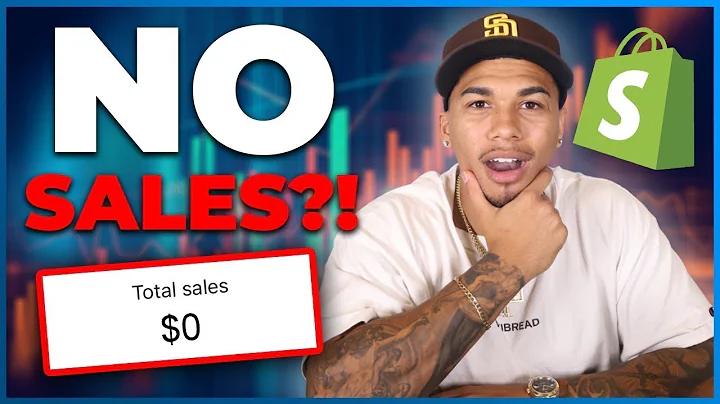Is Dropshipping Legal? Exploring the Legality and Rules
Table of Contents:
- Introduction
- Is dropshipping Legal?
2.1 What Constitutes Something as Illegal?
2.2 Research on Dropshipping Legality
- Dropshipping on Different Platforms
3.1 Shopify
3.2 eBay
3.3 Amazon
- Dropshipping and Amazon's Requirements
4.1 Manufacturer Agreements vs. Retail Dropshipping
4.2 The Importance of Customer Service
- Where Can You dropship From?
5.1 Overstock.com
5.2 Walmart
5.3 Home Depot
5.4 Amazon (despite the restrictions)
- Conclusion
Is Dropshipping Legal? Understanding the Legality and Allowance of Dropshipping
Dropshipping has gained immense popularity in recent years as a business model that allows entrepreneurs to sell products without the need for inventory. However, many people wonder if dropshipping is legal or not, particularly in relation to major online platforms like Amazon. In this article, we will explore the legal aspects of dropshipping and delve into the rules and regulations laid out by different platforms.
- Introduction
Before we dive into the legality of dropshipping, it's important to understand that the information provided in this article does not constitute legal advice. We are merely sharing general information for entertainment purposes. With that clarification, let's begin exploring the legality of dropshipping.
- Is Dropshipping Legal?
To determine whether dropshipping is legal, we need to consider the existence of federal, state, or local laws that declare it unlawful. Extensive research on the subject confirms that dropshipping itself is not illegal. Even major companies like Wayfair.com operate using dropshipping as their primary business model. This indicates that dropshipping is a legitimate and legal business model that has been around for a long time.
2.1 What Constitutes Something as Illegal?
While dropshipping may be legal, it's essential to understand the distinction between legality and allowance. Different platforms, including eBay, Shopify, and Amazon, have the right to set their own Terms of Service and rules for the use of their platforms.
- Dropshipping on Different Platforms
3.1 Shopify
Shopify actively encourages dropshipping and provides extensive resources to help individuals set up successful dropshipping stores. Their Terms of Service reflect the allowance of dropshipping, making it a viable option for entrepreneurs.
3.2 eBay
eBay also allows dropshipping, as long as sellers provide excellent customer service. Buyers' satisfaction is a priority, and eBay emphasizes the importance of maintaining high-quality support.
3.3 Amazon
Amazon's approach to dropshipping is slightly different. While they permit dropshipping under certain conditions, it requires a direct relationship or agreement with the manufacturer. Retail dropshipping, which involves sourcing items from retailers like Walmart and shipping them directly to customers on Amazon, is prohibited.
- Dropshipping and Amazon's Requirements
4.1 Manufacturer Agreements vs. Retail Dropshipping
The restriction on retail dropshipping means that sellers cannot directly source items from retail stores and list them on Amazon. However, dropshipping from manufacturers with whom you have a direct relationship is allowed.
4.2 The Importance of Customer Service
Amazon places a high emphasis on customer service. In order to succeed with dropshipping on Amazon, providing exceptional customer support is crucial. This includes uploading tracking numbers, promptly responding to customer inquiries, and resolving disputes efficiently.
- Where Can You Dropship From?
5.1 Overstock.com
Overstock.com welcomes dropshipping and supports entrepreneurs in this practice. It serves as a reliable source for dropshippers to procure products.
5.2 Walmart
While Walmart officially states that it reserves the right to prohibit sales to resellers, in practice, they do not enforce this rule strictly. Dropshipping from Walmart is generally accepted by the platform.
5.3 Home Depot
Home Depot is another online retailer from which dropshipping is possible. Though they have their terms of service, dropshipping from Home Depot is viable.
5.4 Amazon (despite the restrictions)
Despite retail dropshipping being prohibited by Amazon, many sellers continue to engage in this practice with relative success. Amazon often turns a blind eye to dropshipping as long as sellers provide excellent customer service and generate substantial sales for the platform.
- Conclusion
In conclusion, dropshipping, as a business model, is legal. It is allowed on various platforms, including Shopify, eBay, and Amazon (with some restrictions). By understanding and adhering to each platform's rules and maintaining excellent customer service, entrepreneurs can successfully navigate the world of dropshipping. Remember, while it is not illegal to dropship, it is crucial to stay informed about platform-specific regulations and requirements to avoid any potential consequences.
Highlights:
- Dropshipping is a legal business model.
- Different online platforms have their rules regarding dropshipping.
- Shopify actively encourages dropshipping and provides resources.
- eBay permits dropshipping, emphasizing the importance of customer service.
- Amazon allows dropshipping with manufacturers but restricts retail dropshipping.
- Overstock.com, Walmart, and Home Depot are viable sources for dropshippers.
- Despite restrictions, many sellers continue to engage in dropshipping on Amazon due to a lack of strict enforcement.
- Abiding by platform-specific regulations and providing excellent customer service are vital for dropshipping success.










